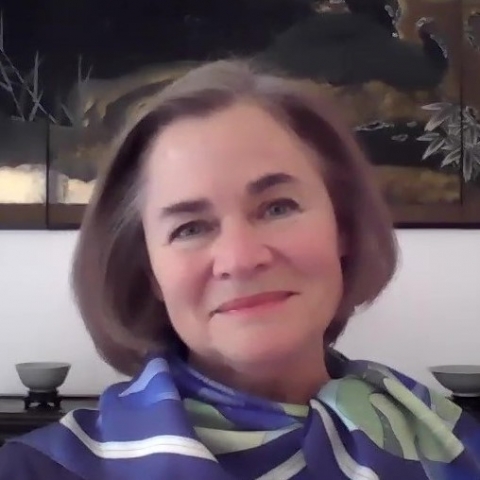The Gift of ARCS – The Gift of Gratitude
These past two years have taught me many things. First among them is how special ARCS is as an organization. ARCS is a gift. Actually, it is many gifts, and these are gifts that we receive ourselves - the gift of contact with young scientists, the gift of purpose, the gift of friendship, the opportunity to learn more things than we ever dreamed of wanting to know, and most important for the purposes of this letter, the gift of gratitude.
We have all supported many charitable causes, and what I have come to know is that ARCS is different from other organizations. Perhaps ARCS is different because we run the organization ourselves, and the jobs are such that no one person can do them alone. We have to rely on each other for expertise and support. The result is that we are constantly thankful for the help, advice, and generosity of other ARCS members.
As president, I spend a lot of time feeling thankful and saying thank you – thank you to our donors, thank you to our members, thank you to my fellow board members, and thank you to our scholars for their dedication to science. I am acutely aware that my own gratitude has had an inspiring and heartwarming effect on me. Why would it be that my own gratitude would affect me in such a positive way?
Dr. Rick Hanson, a psychologist and Senior Fellow at UC Berkeley and Dr. Robert Emmons, professor of psychology at the University of California, Davis, have done remarkable research on the effect of gratitude on the brain.
Their research has shown that when we feel gratitude, parts of our brain’s prefrontal cortex are activated. These parts of our brain have the capacity to increase important neurochemicals like dopamine and serotonin which contribute to the feelings of closeness, connection, and happiness that come with gratitude.
Gratitude can counteract our natural “negativity bias.” As humans, we are naturally wired to notice threats. Early in human history this had an important survival function. However, this negativity bias is no longer as useful to us as it once was and can be counterproductive to our happiness. According to research, feeling and expressing gratitude have lasting effects on the brain and can actually re-wire the brain to be more optimistic and compassionate.
Dr. Hanson found that focusing on being grateful for 20 seconds each day is enough to create positive structural changes in the brain that strengthen the brain’s positive neural pathways. Because our brains love novelty, it is also important that the things we find to be grateful for be new and specific.
New and specific material for which we can be grateful is everywhere in ARCS. We can be grateful that our scholars are engineering bacteria to make biofuels, that they are working to understand gene expression, that they are studying aerospace engineering and plasma propulsion in an effort to reduce space pollution, and that they are developing statistical models to improve global public health. Our scholars provide us with so many reasons to be grateful! When we add all this to the gratitude we feel for the help and expertise of our fellow ARCS members, and to our gratitude for the generosity of our donors, the sources of gratitude become almost infinite.
The ever-changing work of ARCS has been my fertile ground for new experiences of gratitude during these past two years. Every day for two years, I have been flooded with novel and specific reasons to be grateful, and the more I look, the more reasons I find to be grateful.
In ARCS, our vision is “supporting STEM scholars who will change the world.” In practice, what we do expands beyond that. ARCS can change the world. I know this because I have experienced it myself. ARCS has changed my world through the gift of your friendships, through fascinating learning, through a meaningful purpose, and above all through my consistent and ever-changing experience of gratitude. Perhaps this is, indeed, how the world is changed, one person at a time. Thank you all for the gift of ARCS.
Gratefully,
Leslie

